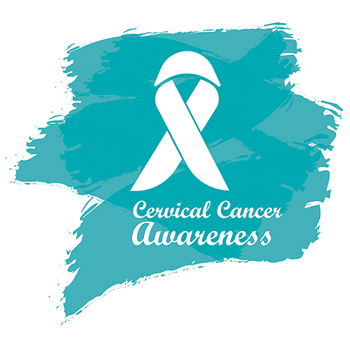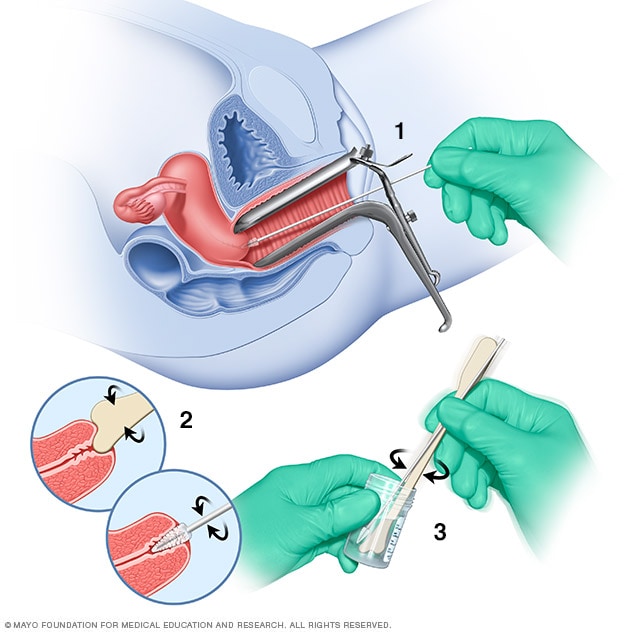January is Cervical Cancer Awareness Month and, as you may already know, I am a fierce advocate for womens’ health. Cervical cancer is one of the few cancers we can prevent through screening and it is a shame that women are still not getting Pap smears as they should.

What is Cervical Cancer?
Cervical cancer is a type of cancer found in the lower part of the uterus, which connects to the vagina. It usually develops in women who are sexually active, mostly between the ages of 30 and 45.
Most of the cervical cancers are caused by high risk strains of HPV (the most common are 16 and 18). HPV is a sexually transmitted infection. If the infection is not eliminated by the woman’s immune system, can cause abnormalities in the cells which will cause them to divide incontrollable and cause tumors.
How do I get tested?
There are two screening tests that can help women get an early diagnosis and or prevent cervical cancer all together.
- The Pap Smear is a test which uses a small sample of cells from the cervix, looking for precancers, which are cell changes on the cervix that might become cervical cancer if they are not treated appropriately.
- HPV testing checks for the virus, not precancerous cells. The test is done in a manner very similar to the Pap test, in what the patients is concerned. In can even get done at the same time as the Pap test, with the same swab or a second swab.

How often should I get a screening test?
The first Pap test should be done at the age of 21. If the result is normal, you can wait 3 years before your next test. Moreover, until the age of 30, Pap smears should be done every 3 years. HPV testing is not recommended for women between 21 and 30 years old as HPV infections are very common at these ages, but they can be spontaneously eliminated.
After the age of 30, there are 3 options the patient can opt for.
- Pap test only can be continued. If the test result is normal, the patient can wait three years for the next test.
- The patient can get an HPV test only. If the test result is normal, the patient can wait five years for your next test.
- Both an HPV and Pap test can be performed together. If the test results are normal, you can wait five years for your next tests.
Cervical cancer usually develops very slowly. Studies estimate that it takes 10 to 20 years for the HPV infection to cause abnormalities in the cervical cells. Therefore, it is higly unlikely for a woman over 64, who has regularly been screened and has had normal test results, to develop the disease. Thus, for these cases, screening can be stopped after 64 years old. If a patient has had an abnormal result in the last 15 years, screening should be continued after 64, until 3 consecutive Pap Smears are negative or if HPV testing is negative.

All in all, get tested!
Much love,
Cristina


Be the first to comment on "Cervical Cancer – Benefits of Screening"